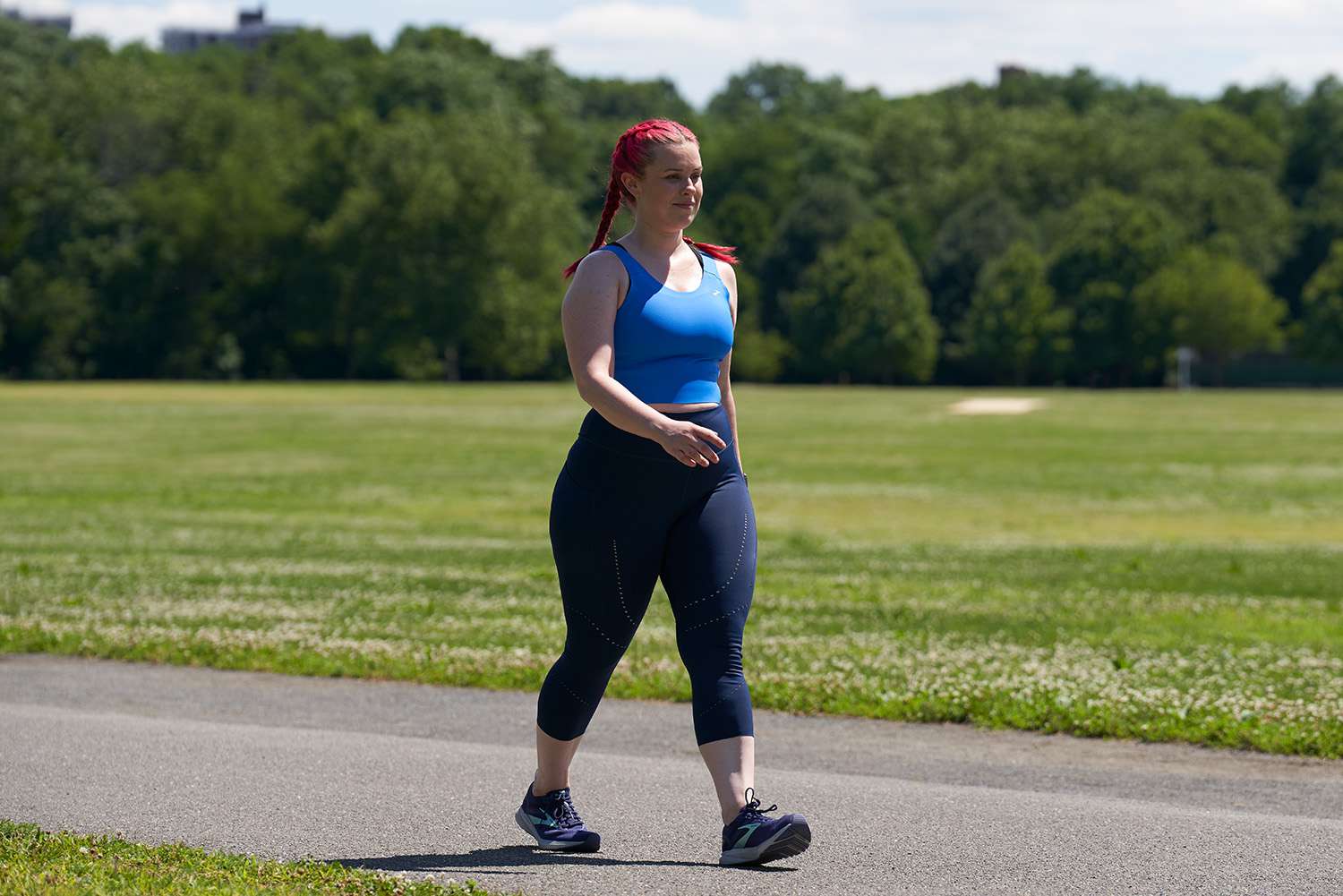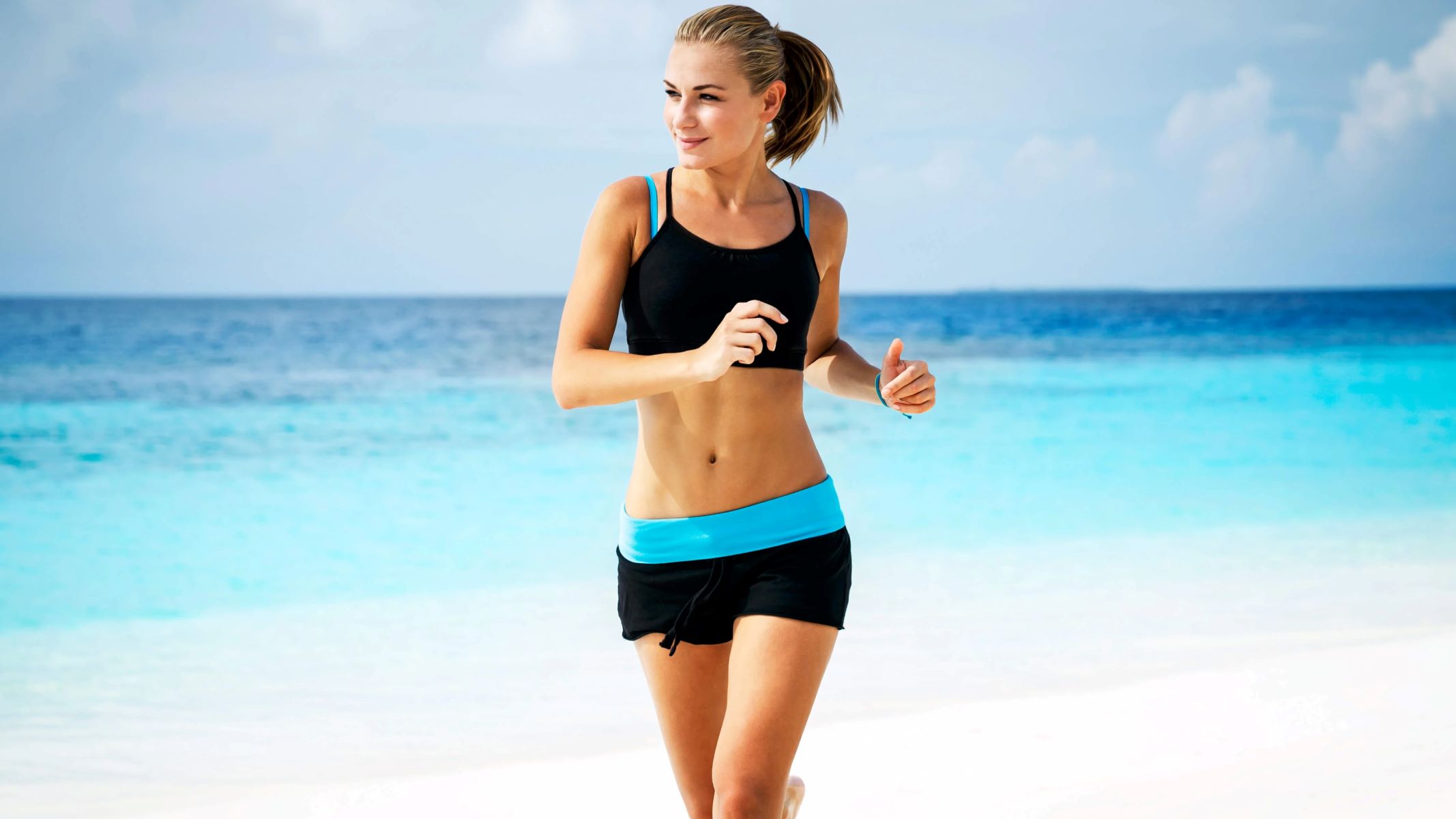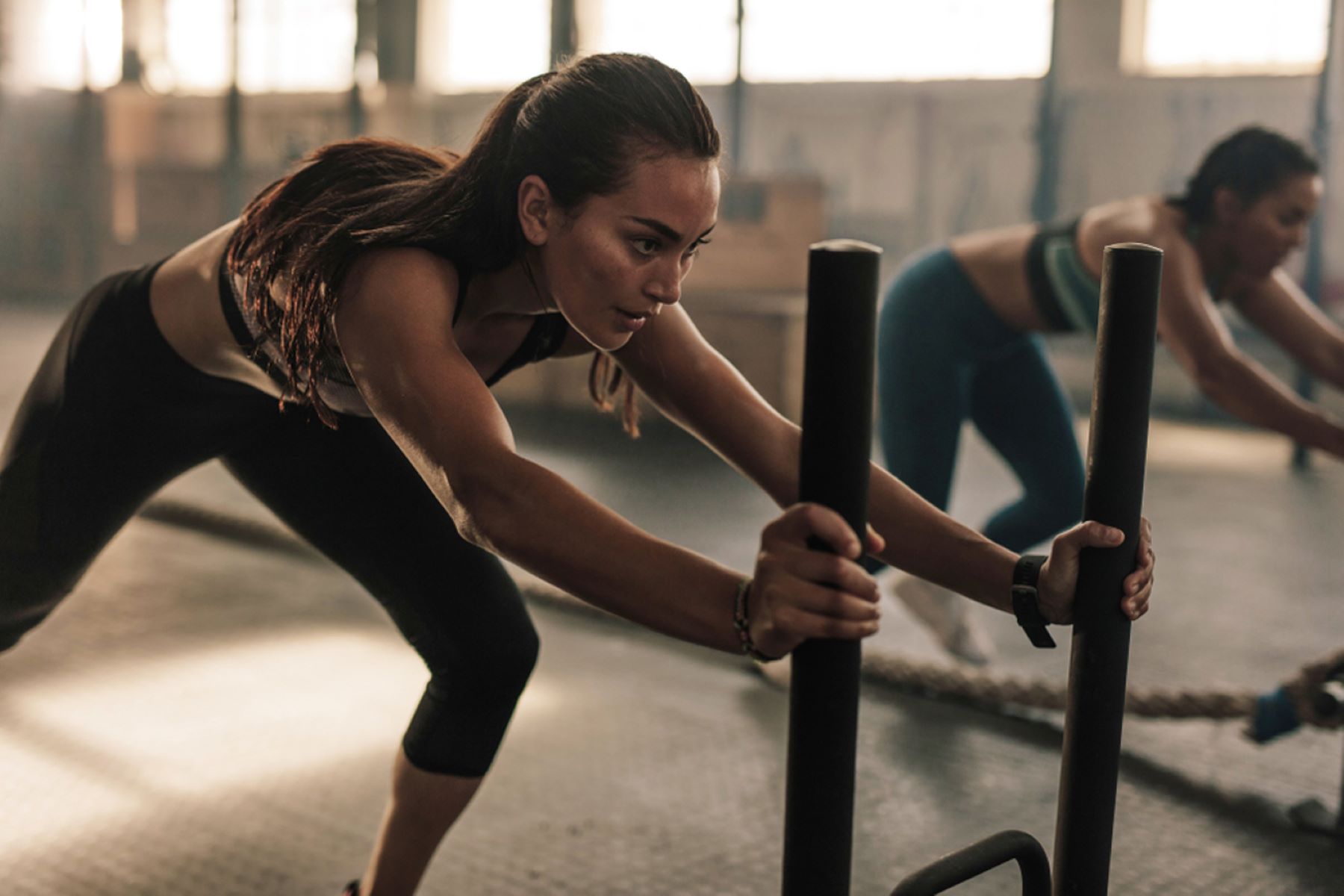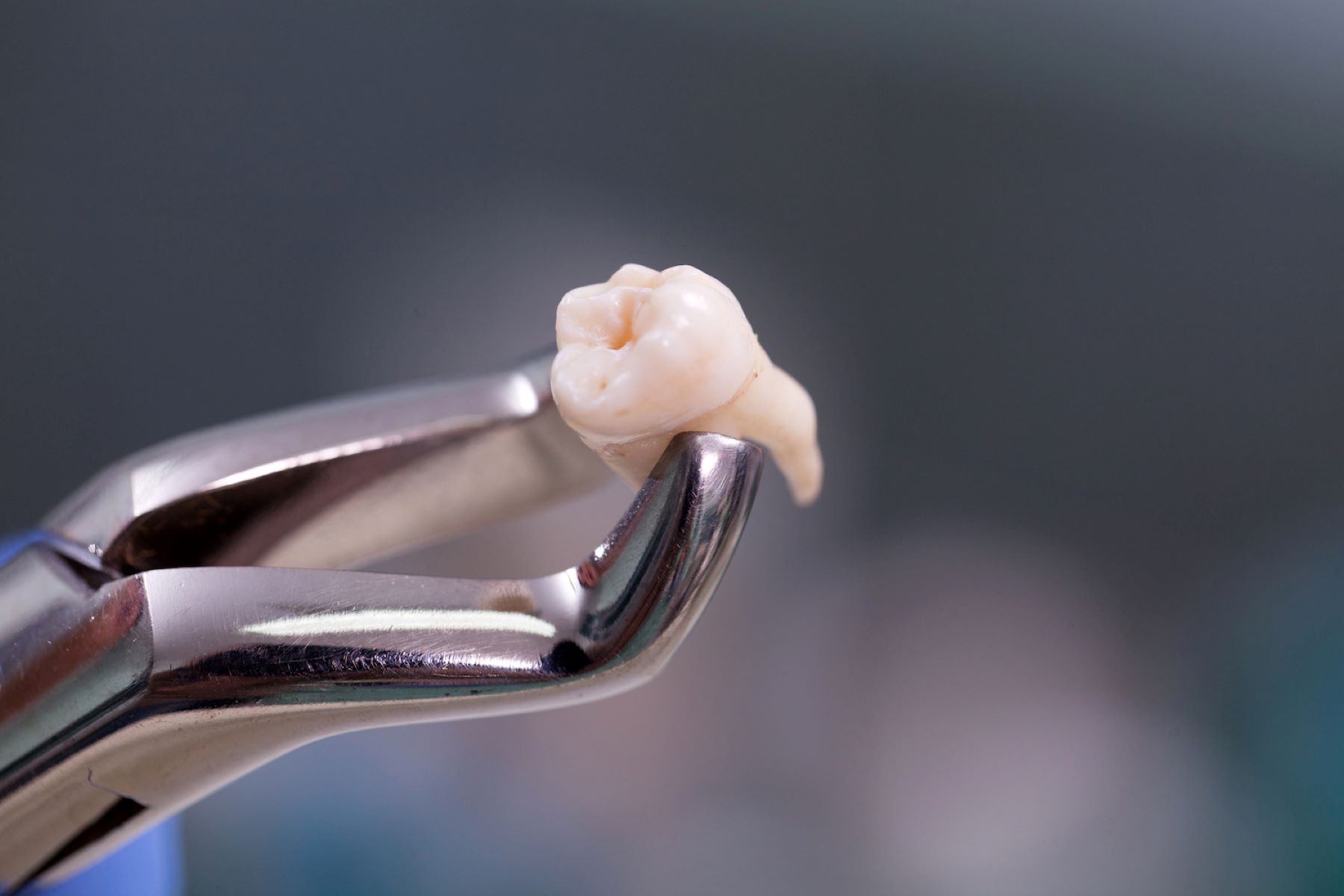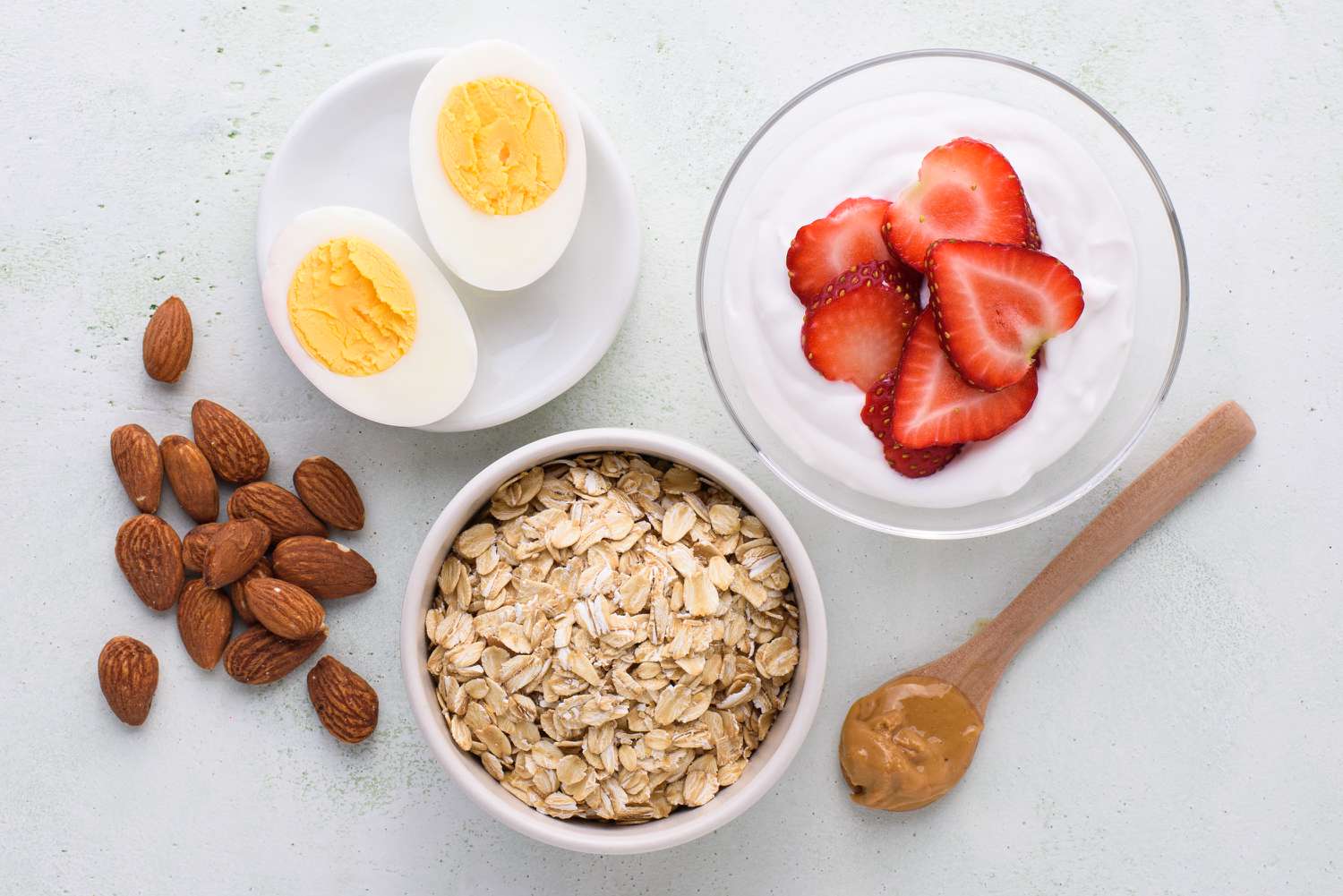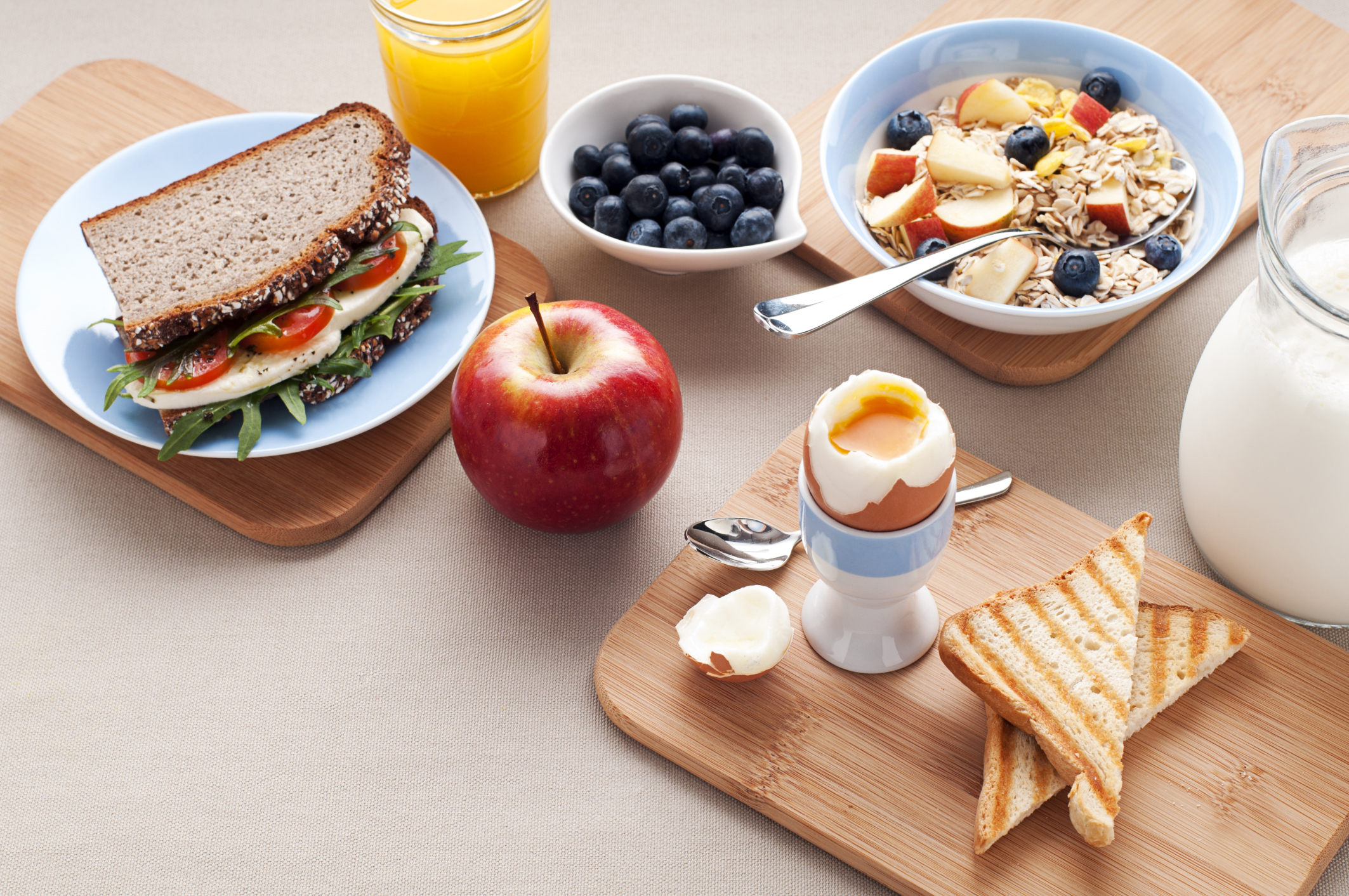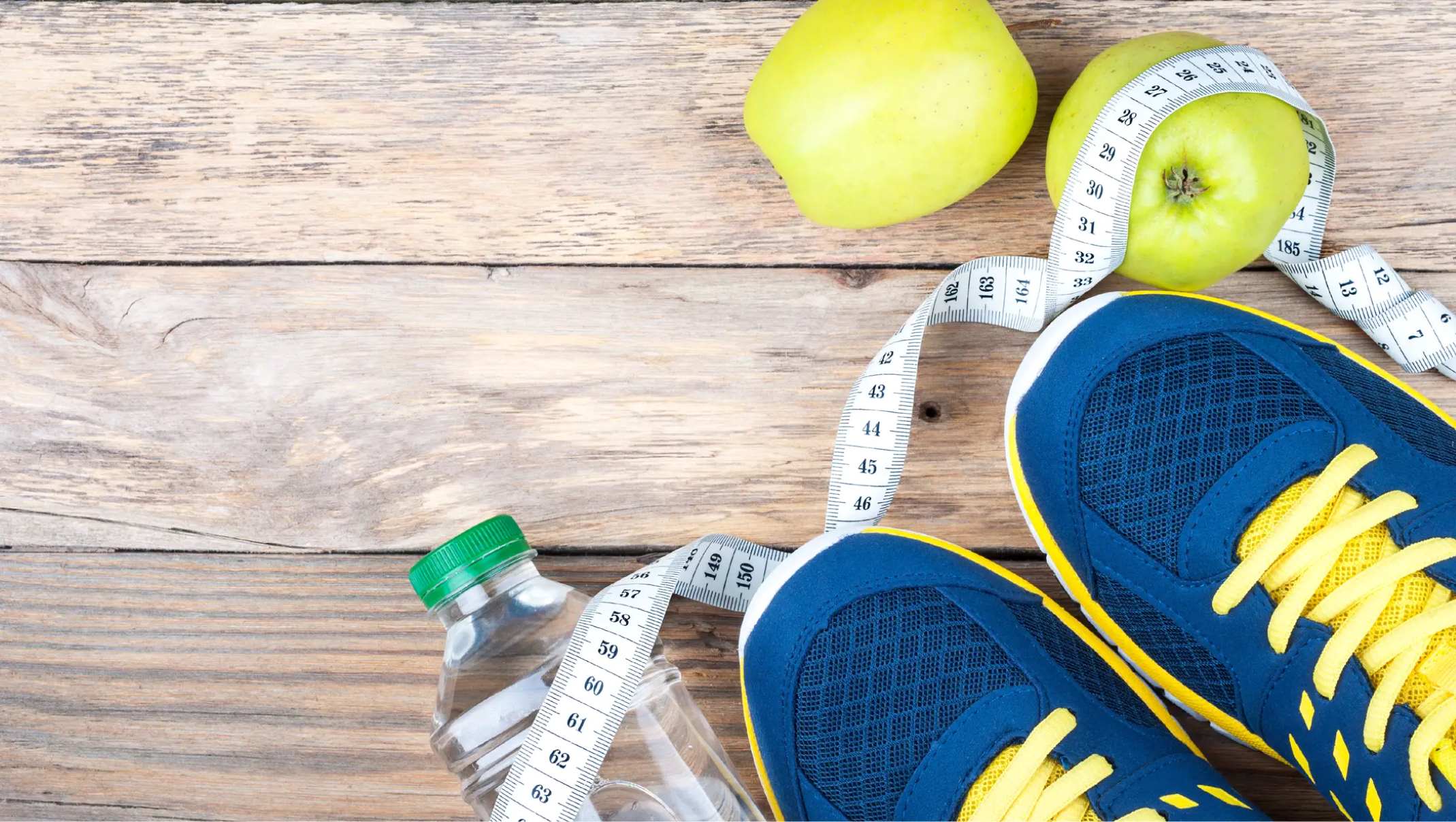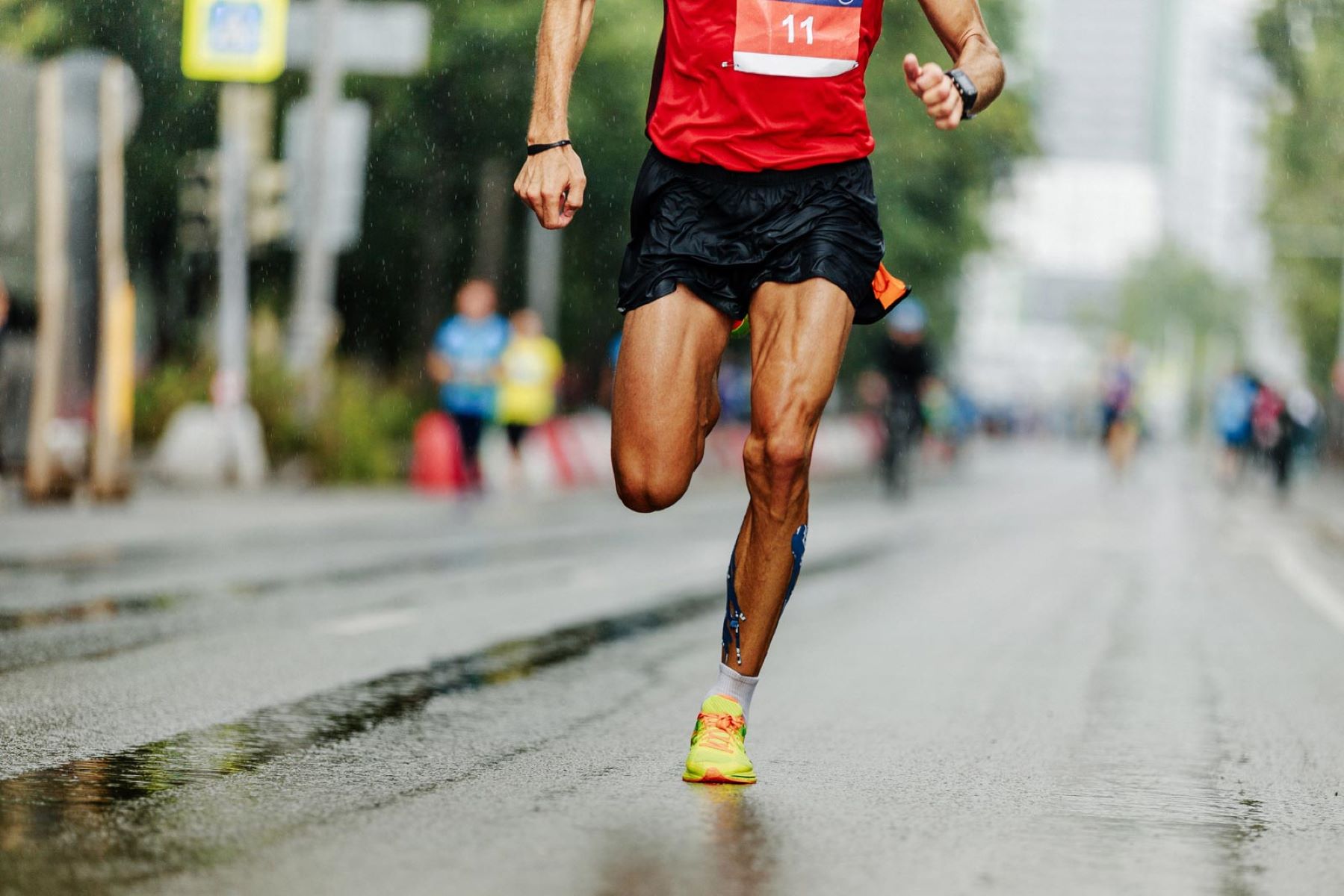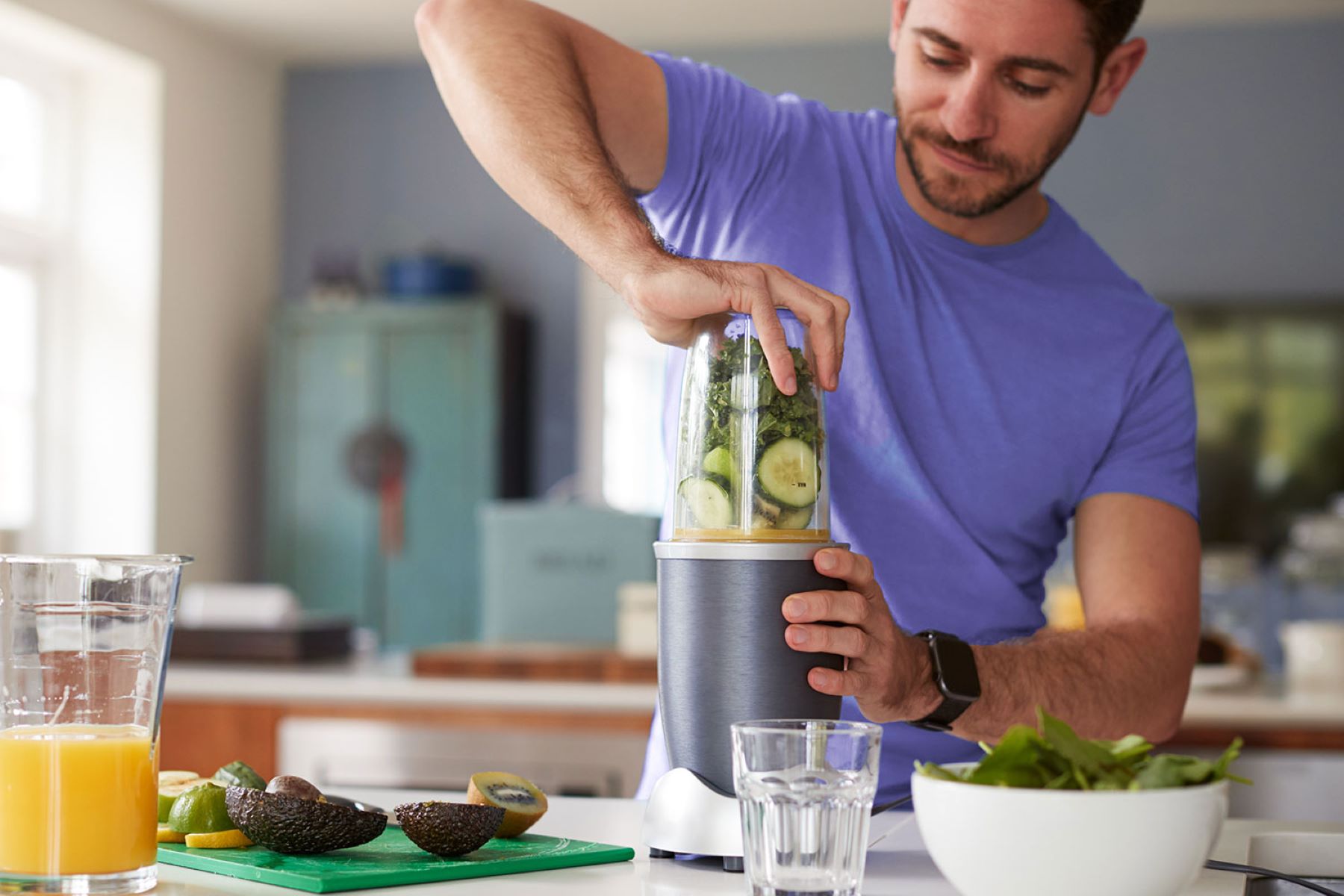

Featured
How Soon To Eat Before Workout
Modified: August 19, 2023
Discover the best timing on how soon to eat before your workout. Featured tips and strategies for optimizing your pre-workout nutrition.
Introduction
Welcome to the world of fitness and exercise! Whether you are a seasoned athlete or just starting your fitness journey, understanding the importance of pre-workout nutrition is crucial for maximizing your performance and achieving your fitness goals. What you consume before a workout can significantly impact your energy levels, endurance, and overall workout experience.
Proper nutrition before a workout is like fueling up your car before a long drive. It provides your body with the necessary energy and nutrients to perform at its best. Just like you wouldn’t drive a car on an empty tank, you shouldn’t expect your body to perform optimally without proper fuel. Pre-workout nutrition helps to enhance muscle strength, improve focus and concentration, and prevent muscle breakdown during exercise.
However, knowing what and when to eat before a workout can be overwhelming, as the right approach varies depending on factors such as the type and intensity of exercise, individual preferences, and specific fitness goals. In this article, we will explore the importance of pre-workout nutrition, factors to consider before eating, optimal timing for pre-workout meals, what to eat, and the crucial aspect of hydration before exercise.
Understanding these aspects will help you make informed decisions about your pre-workout nutrition, allowing you to fuel your workouts effectively and make the most out of your training sessions.
Importance of Pre-Workout Nutrition
Pre-workout nutrition plays a vital role in optimizing athletic performance and ensuring a successful workout session. Here are some key reasons why it is important to fuel your body properly before exercising:
- Energy boost: Consuming a balanced meal or snack before a workout provides your body with the necessary fuel to perform at its best. Carbohydrates are the primary source of energy for your muscles, and eating before exercise replenishes glycogen stores, preventing fatigue and boosting endurance.
- Improved performance: Proper pre-workout nutrition can enhance your strength, power, and overall performance during exercise. When your body is properly fueled, you are more likely to lift heavier weights, perform more reps, and exert greater effort.
- Muscle preservation: During workouts, your body breaks down muscle tissue as it seeks sources of energy. Consuming protein-rich foods before exercise helps counteract this muscle breakdown, promoting muscle repair and growth.
- Mental focus: Pre-workout nutrition not only fuels your body but also primes your mind for exercise. Including foods rich in vitamins, minerals, and antioxidants can improve mental clarity and focus, allowing you to concentrate better during your workout.
- Recovery and growth: By consuming the right nutrients before a workout, you are setting the stage for faster recovery and muscle growth. Adequate pre-workout nutrition supplies your body with the building blocks it needs to repair damaged muscle tissue and initiate the process of muscle building.
Remember, everyone is different, and nutritional needs may vary based on factors such as individual metabolism, fitness goals, and the type of exercise being performed. It is essential to listen to your body and experiment with different approaches to find what works best for you.
Factors to Consider Before Eating Before a Workout
When it comes to pre-workout nutrition, there are several factors to consider to ensure you make the right choices and optimize your performance. Let’s take a look at these factors:
- Timing: The timing of your pre-workout meal or snack is crucial. Eating too close to your workout can lead to discomfort, while eating too far in advance may leave you feeling hungry and low on energy during your exercise. Aim to eat a balanced meal or snack 1-3 hours before your workout, giving your body enough time to digest and absorb the nutrients.
- Individual preferences: Each person’s body may respond differently to different types and quantities of food before a workout. Some individuals prefer a full meal, while others find it more comfortable to consume a smaller snack. Experiment with different options to determine what works best for your body and provides the optimal energy levels for your workouts.
- Type of exercise: The type and intensity of exercise you plan to engage in can influence your pre-workout nutrition needs. For example, a long-distance runner may require more carbohydrates for sustained energy, while a strength training enthusiast may benefit from additional protein to support muscle repair and growth. Consider the specific demands of your workout when planning your pre-workout meal.
- Digestibility: Choose foods that are easily digestible to prevent discomfort or stomach upset during your workout. Foods high in fiber and fat take longer to digest and may not be suitable for everyone before exercise. Opt for foods that are lower in fiber and fat and higher in easily digestible carbohydrates and lean protein.
- Personalized goals: Your specific fitness goals can also play a role in determining your pre-workout nutrition choices. If you are trying to build muscle, you may want to focus on consuming adequate protein before your workout. If weight loss is your goal, you may need to pay attention to portion sizes and choose options that are lower in calories but still provide sustained energy.
- Hydration: Proper hydration is key for optimal performance. Make sure to drink enough water before your workout to stay hydrated. Dehydration can negatively impact your energy levels and overall exercise performance.
By considering these factors, you can tailor your pre-workout nutrition to suit your individual needs, ensuring that you have the right balance of nutrients to fuel your body and enhance your workout experience.
Optimal Timing for Pre-Workout Meals
The timing of your pre-workout meal is crucial for maximizing energy levels and avoiding discomfort during exercise. Here are some guidelines to help you determine the optimal timing for your pre-workout meals:
- 1-3 hours before: Consuming a balanced meal containing carbohydrates, protein, and healthy fats 1-3 hours before your workout is a popular approach. This allows enough time for digestion and absorption, providing a steady source of energy during your exercise.
- 1 hour before: If you prefer to eat closer to your workout, choose a smaller snack that is easily digestible. Opt for a combination of carbohydrates and protein, such as a banana with nut butter or a protein smoothie.
- 15-30 minutes before: If you have limited time or prefer to eat very close to your workout, choose easily digestible carbohydrates. This could be a piece of fruit, a small granola bar, or a sports drink. Keep in mind that the closer you eat to your workout, the smaller the portion should be to avoid discomfort.
- Experiment and listen to your body: It’s important to find what timing works best for you. Pay attention to how you feel during your workouts with different meal timings and adjust accordingly. Some individuals may find that eating too close to a workout causes discomfort, while others may feel sluggish if they eat too far in advance.
Remember that everyone’s body is unique, and what works for one person may not work for another. It’s important to experiment and find the timing that allows you to feel energized and comfortable during your workouts.
Additionally, it’s worth noting that liquids are generally digested more quickly than solid foods. If you choose to consume a liquid meal or supplement, you may be able to eat closer to your workout without feeling heavy or bloated.
Keep in mind that larger meals may require more time to digest, so allow yourself more time if you plan to eat a substantial pre-workout meal. On the other hand, smaller snacks may be digested in a shorter period, making them suitable for closer consumption to your workout time.
Ultimately, finding the optimal timing for your pre-workout meal is a matter of personal preference and trial and error. Listen to your body, adjust as needed, and pay attention to how your energy levels and performance are affected by different meal timings.
What to Eat Before a Workout
Choosing the right foods before a workout is essential for providing your body with the necessary nutrients and energy to perform at its best. Here are some guidelines on what to eat before a workout:
- Carbohydrates: Carbohydrates are the primary source of fuel for your muscles. Aim to consume complex carbohydrates, such as whole grains, fruits, and vegetables, as they provide a steady release of energy during your workout. Examples of pre-workout carbohydrates include oatmeal, brown rice, whole-wheat toast, or fruit.
- Protein: Including protein in your pre-workout meal or snack can help promote muscle repair and growth. Opt for lean sources of protein, such as chicken, turkey, fish, eggs, or Greek yogurt. Consuming whey protein powder mixed with water or a smoothie is also a convenient option.
- Healthy fats: While carbohydrates are the primary source of energy, healthy fats provide long-lasting fuel and help keep you satiated during your workouts. Include sources of healthy fats, such as avocado, nuts, seeds, or nut butter, in your pre-workout meal or snack.
- Hydration: Proper hydration is key before any workout. Drink water throughout the day leading up to your workout to ensure you are properly hydrated. If you are participating in a high-intensity or longer-duration exercise, consider consuming a sports drink or electrolyte-rich beverage to replenish electrolytes lost through sweat.
- Avoid heavy meals: It’s best to avoid consuming heavy meals close to a workout, as they can cause discomfort and make you feel sluggish. Opt for lighter, easily digestible meals or snacks that provide a good balance of carbohydrates, protein, and fats.
Here are some pre-workout meal and snack ideas:
- Whole-grain toast with avocado and a boiled egg
- Greek yogurt with berries and a sprinkle of granola
- Grilled chicken or tofu with quinoa and steamed vegetables
- A protein smoothie with mixed fruits, spinach, and almond milk
- A small handful of nuts with a piece of fruit
Everyone’s nutritional needs are unique, so be sure to experiment with different food combinations and portion sizes to find what works best for you. Listen to your body, and if something doesn’t sit well or causes discomfort, make adjustments accordingly.
Remember, pre-workout nutrition is about fueling your body with the right nutrients to enhance performance, promote muscle recovery, and optimize your overall workout experience.
Hydration Before Exercise
Proper hydration is essential for peak performance during exercise. When it comes to pre-workout hydration, here are some important points to consider:
- Starting hydrated: Ensure that you start your workout session well-hydrated by drinking water throughout the day. Thirst is not always an accurate indicator of hydration, so aim to consume enough fluids to maintain clear or pale yellow urine.
- Timing: Hydration is not something that can be achieved last-minute. It’s important to hydrate consistently leading up to your workout. Drink water or other hydrating fluids throughout the day, especially in the hours leading up to your exercise session.
- Electrolytes: In addition to water, consider consuming fluids that contain electrolytes, such as sodium, potassium, and magnesium. These minerals are lost through sweat and need to be replenished to maintain proper muscle function and hydration levels. Sports drinks or electrolyte-infused water can be beneficial for longer, more intense workouts.
- Pre-workout beverages: Some individuals may find it beneficial to consume a small amount of fluid, such as 8-16 ounces, around 1-2 hours before their workout. This can help prime hydration levels and ensure that you start your workout in a hydrated state.
- Individual needs: Hydration needs vary widely depending on factors such as the intensity and duration of exercise, sweat rate, and individual tolerance. It’s important to listen to your body and adjust your fluid intake accordingly. If you are unsure about your hydration needs, consulting with a healthcare professional or registered dietitian can provide helpful guidance.
If you are participating in high-intensity or prolonged exercise lasting longer than an hour, it may be beneficial to consume a sports drink or electrolyte-rich beverage. These can help replenish electrolytes lost through sweat and provide additional carbohydrates for sustained energy.
Remember, staying properly hydrated before, during, and after exercise is crucial for optimizing performance, preventing dehydration, and ensuring a successful workout session. Don’t wait until you’re thirsty to drink water; prioritize consistent hydration throughout the day to support your fitness goals.
Keep a water bottle with you during your workout and take regular sips to prevent dehydration. Postponing hydration until the end of your session may not be sufficient to replace lost fluids adequately.
It’s important to note that individual hydration needs can vary, so paying attention to your body and adjusting your fluid intake accordingly is key. Stay consistent with your hydration efforts to support optimal performance and overall well-being.
Conclusion
Proper pre-workout nutrition and hydration are essential for optimizing your performance and maximizing the benefits of your exercise routine. By understanding the importance of pre-workout nutrition, considering various factors before eating, timing your meals appropriately, and knowing what foods to fuel your body with, you can enhance your energy levels, endurance, and overall workout experience.
Remember that there is no one-size-fits-all approach to pre-workout nutrition. Experimentation and listening to your body are key to finding the right balance of nutrients that work best for you. What works for someone else may not work for you, so pay attention to how different foods and meal timings affect your energy levels and performance.
Similarly, hydration plays a crucial role in your workout performance. Start your exercise session well-hydrated by consistently drinking water throughout the day and consider consuming fluids that contain electrolytes to replenish minerals lost through sweat. Prioritize staying hydrated before, during, and after your workouts to support optimal performance and prevent dehydration.
Ultimately, finding the right pre-workout nutrition and hydration strategy will help you reach your fitness goals faster, enhance your endurance, and promote muscle repair and growth. By fueling and hydrating your body properly, you give yourself the best chance of achieving success in your workouts and enjoying the overall health benefits of regular exercise.
So, take the time to plan and prepare your pre-workout meals and beverages, listen to your body’s needs, and make adjustments as necessary. With the right approach to pre-workout nutrition and hydration, you can take your fitness journey to new heights and unlock your full potential!
